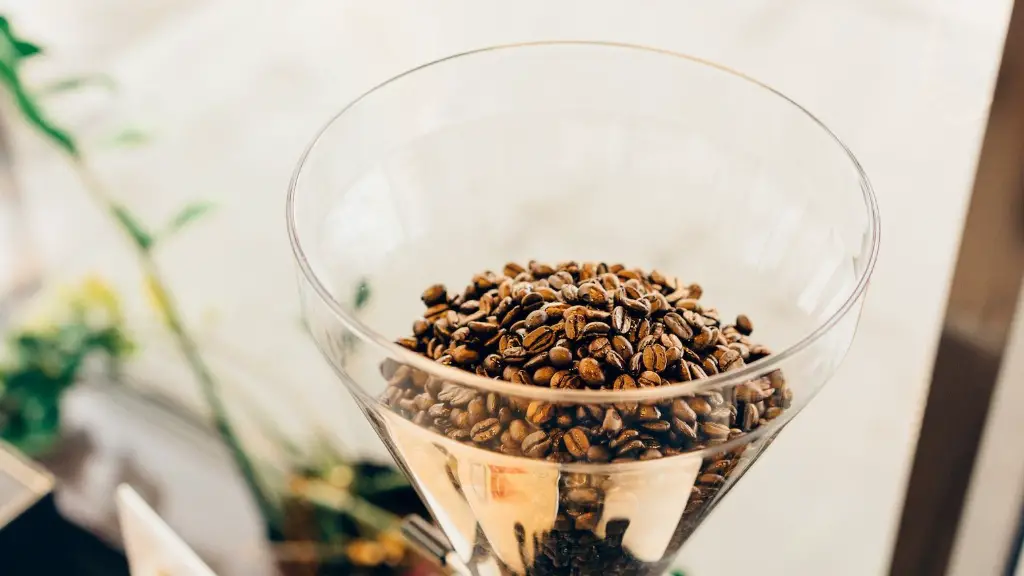Women want to know if they can drink coffee when theyre pregnant. It goes without saying that coffee is an important part of many people’s daily routines, and some moms-to-be may be worried about the consequences of forgoing their daily cup of joe. As it turns out, there are a few factors to consider when drinking coffee during pregnancy.
For starters, its important to keep in mind that caffeine is a stimulant – meaning it can have an impact on your pregnancy. A major component in coffee, caffeine stimulates your central nervous system, as well as your body in general; this can lead to potential issues like dehydration or heightened blood pressure. Research has also shown that consuming too much caffeine while pregnant can cause growth restrictions in the unborn fetus. Some studies suggest that consuming more than 200mg of caffeine per day – the equivalent of two 8-ounce cups of coffee – can increase a womans risk of having a miscarriage.
This shouldnt be a deterrent, however. Theres no definitive evidence to show that a little bit of coffee wont affect your eager babe –in fact, recent studies have suggested that moderate caffeine consumption (less than 200mg per day) is not linked to any health risks. This means women who are 35 weeks pregnant or less are in the clear for a baby-sized cup of joe.
Still, you may want to consider modifying your coffee intake, as everyone metabolizes caffeine differently. Different levels of caffeine sensitivity and health conditions (like hypertension or gestational diabetes) will also affect how your body processes the stimulant. Its important to talk to your doctor about what amount of caffeine is safe for you.
Furthermore, if you are pregnant and decide to consume coffee, you should be aware that all coffees have different levels of caffeine. Generally speaking, espresso has the highest amount of caffeine, followed by filtered coffee, and then percolated coffee. So, if you are wanting to pay attention to the amount of caffeine added to your bloodstream, stay away from espressos and opt for percolated or filtered coffee. Additionally, refrain from adding sugary syrups, creams, and sweeteners to your drinks, because this can add calories and processed sugars to your diet – something else youll want to keep your intake of in check.
Surprisingly, decaffeinated coffee is a great option for pregnant women. The process used to remove caffeine from decaf coffee doesnt leave any toxins behind, so this type of coffee is considered safe during pregnancy. Of course, decaf coffees are still not 100% caffeine free. So, if you want to opt out of caffeine, you may be better off drinking something else.
Its important to remember that coffee is something most pregnant women enjoy in moderation – like anything else. Moderation is key, particularly during pregnancy when women are supposed to look out for their own health and the health of their baby. Be sure to consider how caffeine may affect you, and keep your intake at a safe level.
Coffee Alternatives for Pregnant Women
If you’re a mother-to-be looking for an alternative to coffee, there are plenty of foolproof choices that will get you the pick-me-up you need. Herbal tea is a great way to get a natural boost of energy. Similarly, nutrient-rich green tea offers a myriad of health benefits with minimum caffeine.
If you’re looking for something more stimulating, there are several coffee substitutes out there on the market. Roasted chicory or barley coffee are perfect decaffeinated substitutes with a coffee-like aroma and flavour.
For pregnant women, getting a little extra energy might be essential. Fortunately, there are a wide range of caffeine-free drinks to choose from that are great-tasting, good for you, and perfectly safe.
If you do prefer an alternative with a kick, some brands of tea and coffee offer low-caffeine options. Look out for drinks labelled ‘half-caff’, ‘three-quarter-strength’ or ‘low-caff’. In general, seek out options with at least half the amount of caffeine as traditional coffee.
Essential Rules for Caffeine Consumption During Pregnancy
If you do choose to consume coffee while pregnant, theres a few essential guidelines you should follow.
Firstly, keep track of your daily intake. Aiming to stick to no more than 200mg a day is key. Remember that it is easy to lose track when it comes to caffeine consumption, as there are many sources of it.
Try to avoid drinking coffee on an empty stomach. It’s best to have breakfast first to avoid the effects of a caffeine overload.
Take time to limit the amount of caffeine you put into your body by drinking plenty of water. Being well-hydrated will help reduce its effects and flush out any residual toxins.
In addition, its important to be aware of caffeine-containing foods, such as chocolates, cakes and some snack foods. Pay special attention to their labels and know what youre consuming.
Common Pregnancy Symptoms and Caffeine Consumption
Caffeine consumption during pregnancy is associated with a range of pregnancy-related symptoms, such as nausea, fatigue and headaches.
Headaches, in particular, can be quite frequent during pregnancy. But while pregnancy hormones can cause headaches, caffeine can exacerbate their severity. It is important to know when and how much caffeine you are consuming and how to manage it.
Dizziness and fatigue are two other common pregnancy symptoms – and caffeine can further increase these side effects. Taking too much caffeine can lead to an increase in heart rate and your body temperature can rise. This can cause further exhaustion in pregnant women.
Finally, caffeine can lead to an increase in nausea during pregnancy, particularly if its consumed on an empty stomach. Consuming small amounts of caffeine throughout the day can reduce any potential upset stomach.
The Takeaway: Is Coffee Good for Me During Pregnancy?
Coffee can be great for certain people, particularly if its in moderation. As long as you stay informed and mindful of your caffeine and coffee intake during pregnancy, you can enjoy the plethora of benefits that come with a little energy boost.
But if youre worried or concerned, it may be safer to avoid drinking coffee during pregnancy. This is especially true if you have issues like high blood pressure, gestational diabetes, or any other condition that can be worsened by caffeine.
In either case, its important to have open communication with your doctor about your health and diet, and make sure you have an understanding about what is best for you and your baby.





